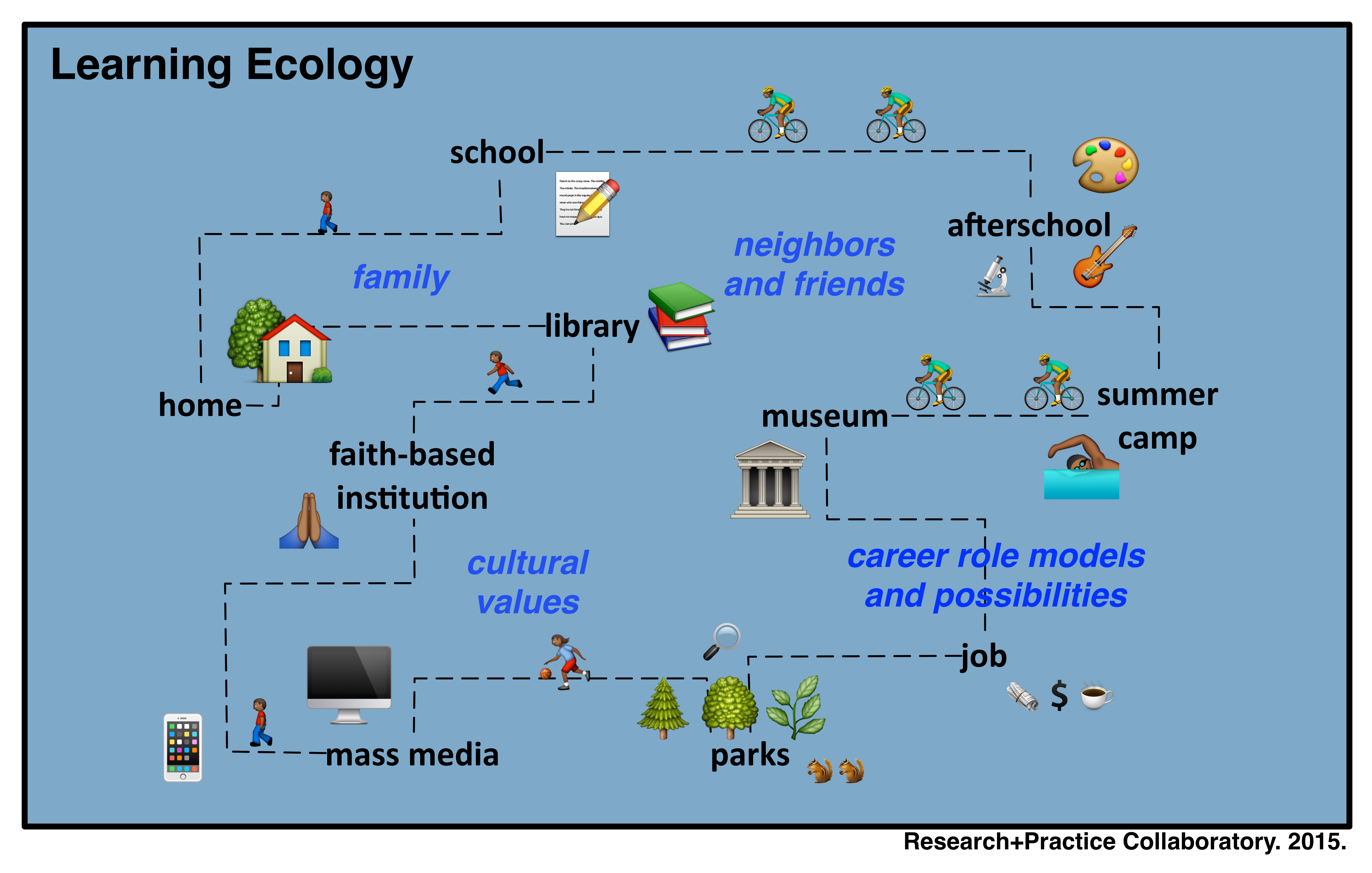Editorial
Families Are Essential in the STEM Learning Ecosystem
There’s been a lot of focus recently on STEM learning ecosystems and ecologies, recognizing that learning happens everywhere and all the time—in schools, in the community, and at home. Where and when learning can take place has no boundaries, and it is important to recognize the web of opportunity that exists within a community and find ways to strengthen it.
This issue of Connected Science Learning brings attention to the role that families play in STEM learning; engaging families is critical to ensuring that all young people have the opportunity to engage in science in meaningful ways and consider STEM career possibilities. Families can get involved in STEM learning in many different ways (e.g., providing feedback that influences program design and improvement, participating in learning experiences with their kids, receiving resources and information that support engagement, and advocating in their schools and communities). The family engagement project of the STEM Next Opportunity Fund identifies promising practices for engaging families: listening and learning, sharing research and resources, prioritizing access and inclusion, providing parent learning experiences, and evaluating the impact of efforts to engage families. Articles you’ll find in Connected Science Learning over the next three months explore how these and other practices are applied in a variety of settings. This isn’t an entirely new topic for the journal; a quick search of CSL’s archives provides a list of even more articles focused on families.
On a separate note, we have some exciting news to share!
NSTA has been awarded funding from the National Science Foundation to convene a study group to advance the development and delivery of high-quality connected science learning experiences. The focus of this study group will be identifying relevant research, evidence-based practices, and exemplary program models that bridge the gap between in- and out-of-school, demonstrate blended teaching and learning practices from informal and formal settings, and emphasize authentic collaboration between educators and organizations. This project will result in a collection of resources for Connected Science Learning enthusiasts, specifically a series of feature articles, web seminars, and online forums that NSTA will launch in 2021. We are so pleased to have this opportunity to support you in providing connected STEM learning experiences in your communities!
Beth Murphy, PhD (bmurphy@nsta.org), is field editor for Connected Science Learning and an independent STEM education consultant with expertise in fostering collaboration between organizations and schools, providing professional learning experiences for educators, and implementing program evaluation that supports practitioners to do their best work.
General Science Inclusion STEM Informal Education


